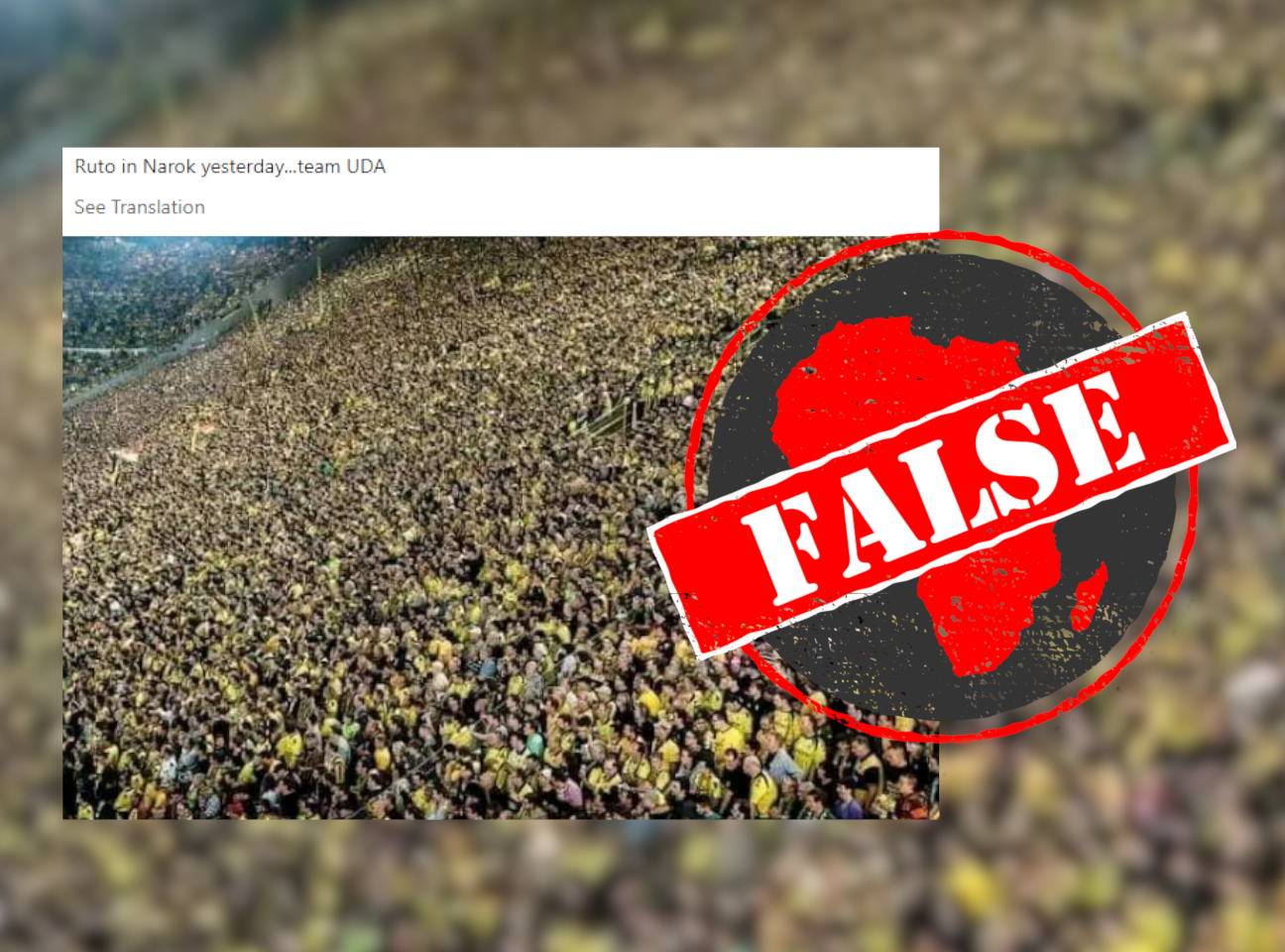Ahead of the Kenyan general election set for 9 August 2022, politicians in the country are holding rallies, with large crowds seen as proof of popularity.
On 29 May, a day after deputy president William Ruto’s visit to Narok county, west of the capital Nairobi, a photo of a large crowd was posted on Facebook.
“Ruto in Narok yesterday … team UDA,” read the caption to the photo, which a number of other Facebook users reposted.
Ruto is the United Democratic Alliance (UDA) presidential candidate in the elections.
But does this photo of a crowd wearing yellow show Ruto supporters? We checked.

Photo old, unrelated
A reverse image search of the photo using Tineye revealed that the photo was more than eight years old.
The photo was previously published here, here and here. Although these photos aren’t captioned, the articles or blog posts where they appear are about football, not Kenyan political rallies.
A further search led to a similar photo published on an online shop based in Germany.
The caption in German reads: “Aufnahme der vollbesetzten Südtribüne beim Spiel Borussia Dortmund - Hamburger SV am ersten Bundesliga-Spieltag der Saison 2011/12 (Endstand: 3:1).”
This translates to: “Photo of the packed south stand during the Borussia Dortmund-Hamburger SV game on the first Bundesliga match day of the 2011/12 season (Final score: 3:1).”
Borussia Dortmund and Hamburger SV are professional football clubs in the top German league, or Bundesliga. Dortmund’s team colour is yellow.
The picture has been credited to photographer Reinaldo Coddou H and was taken on 6 August 2011.
The photo has nothing to do with Ruto’s May 2022 rally in Narok.
Republish our content for free
For publishers: what to do if your post is rated false
A fact-checker has rated your Facebook or Instagram post as “false”, “altered”, “partly false” or “missing context”. This could have serious consequences. What do you do?
Click on our guide for the steps you should follow.
Publishers guideAfrica Check teams up with Facebook
Africa Check is a partner in Meta's third-party fact-checking programme to help stop the spread of false information on social media.
The content we rate as “false” will be downgraded on Facebook and Instagram. This means fewer people will see it.
You can also help identify false information on Facebook. This guide explains how.


Add new comment